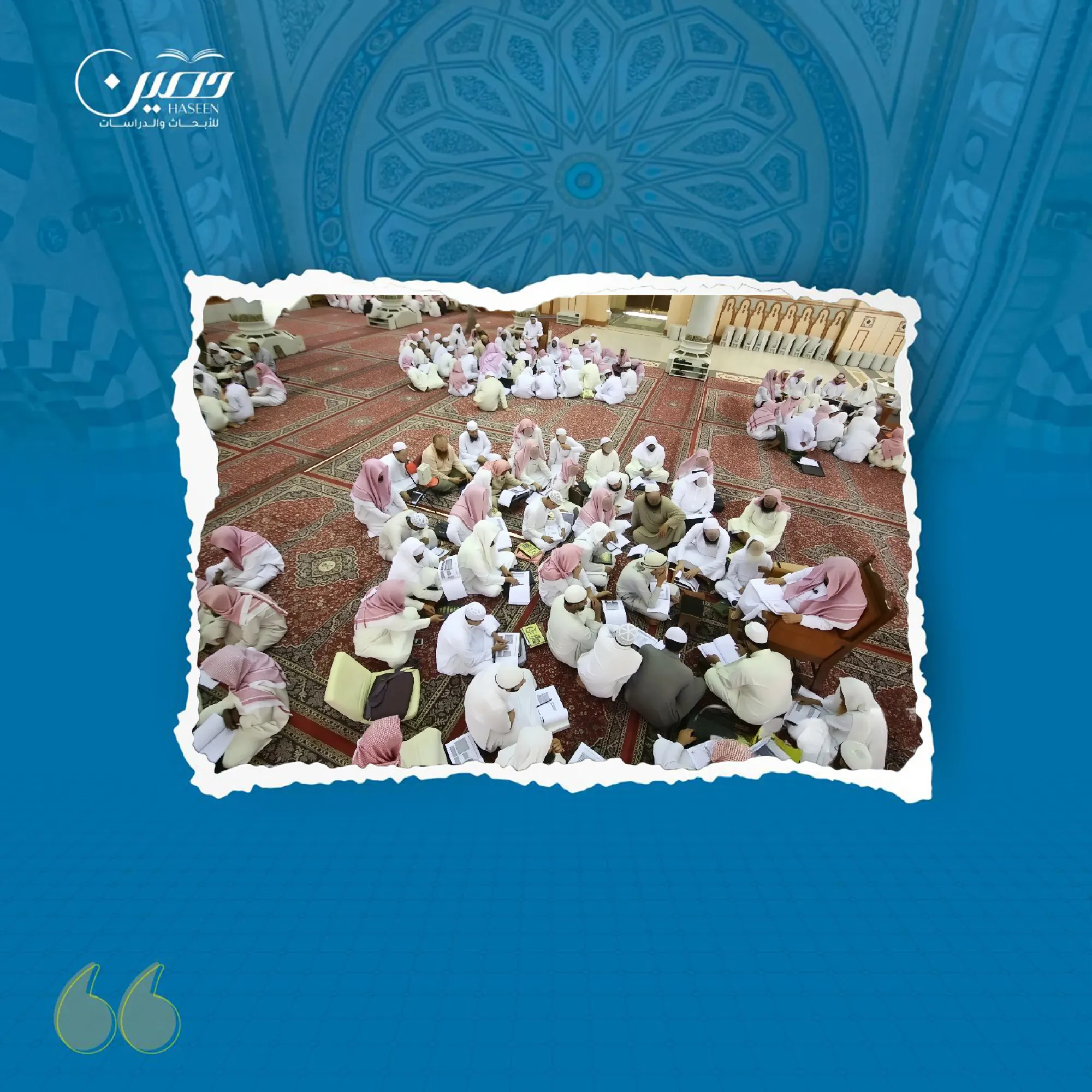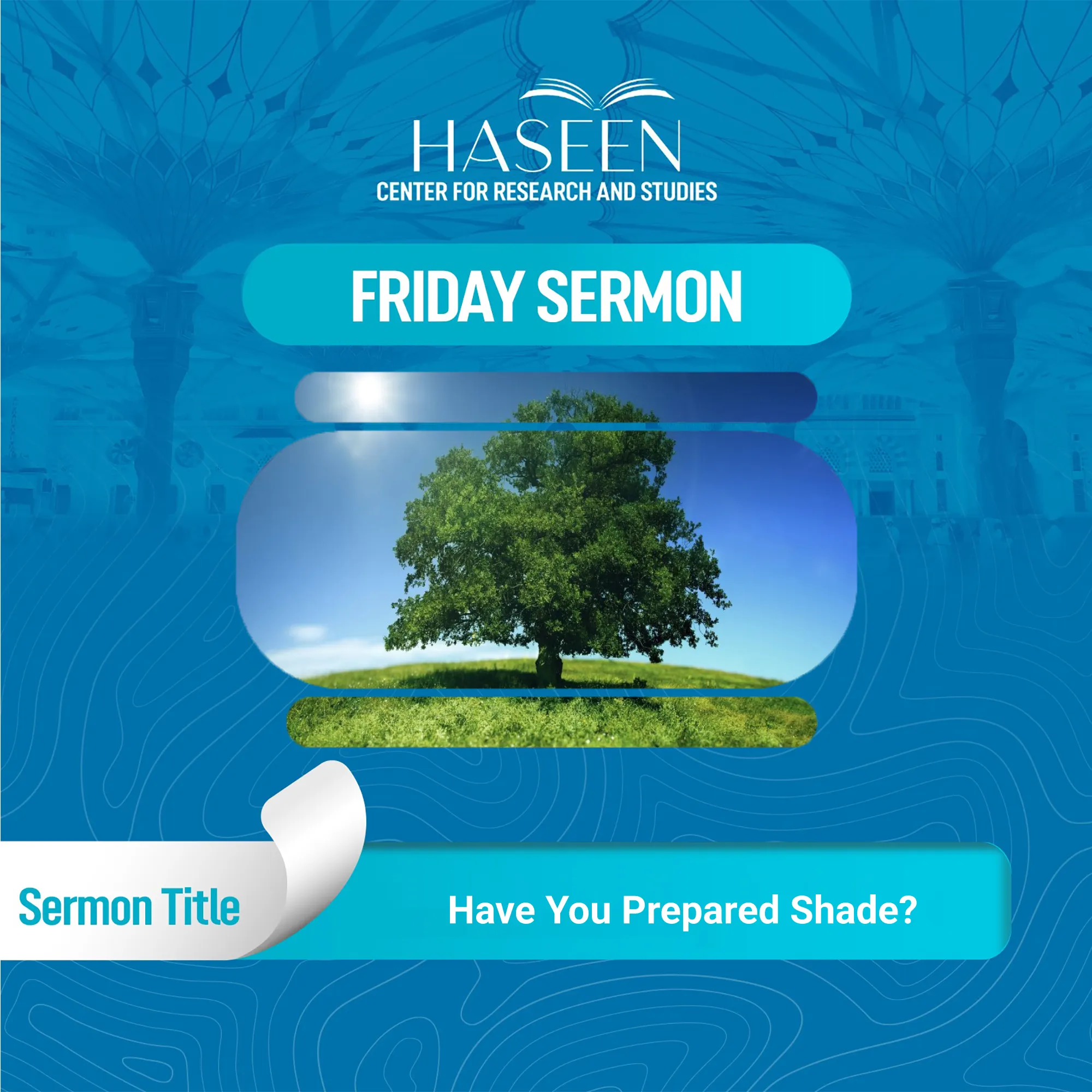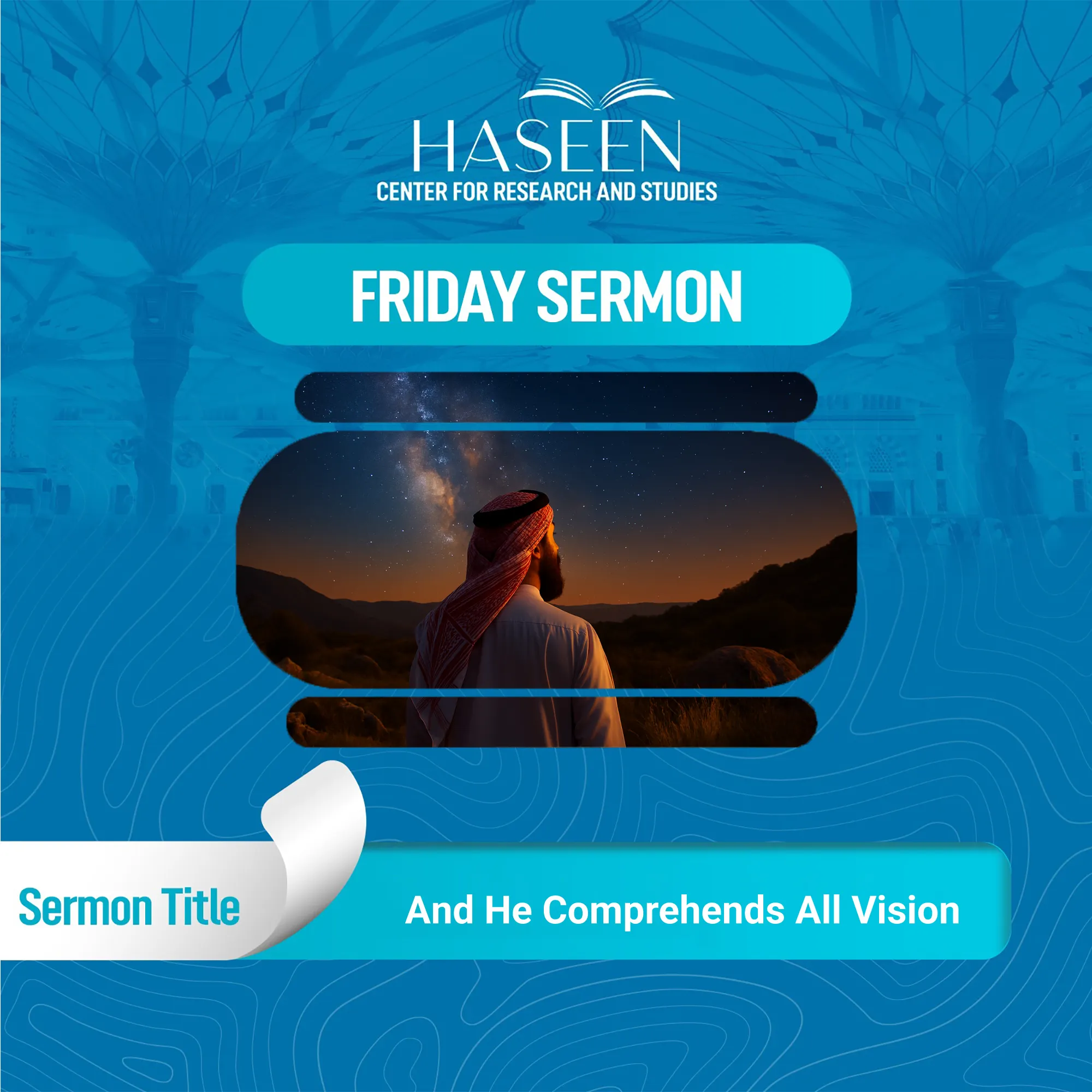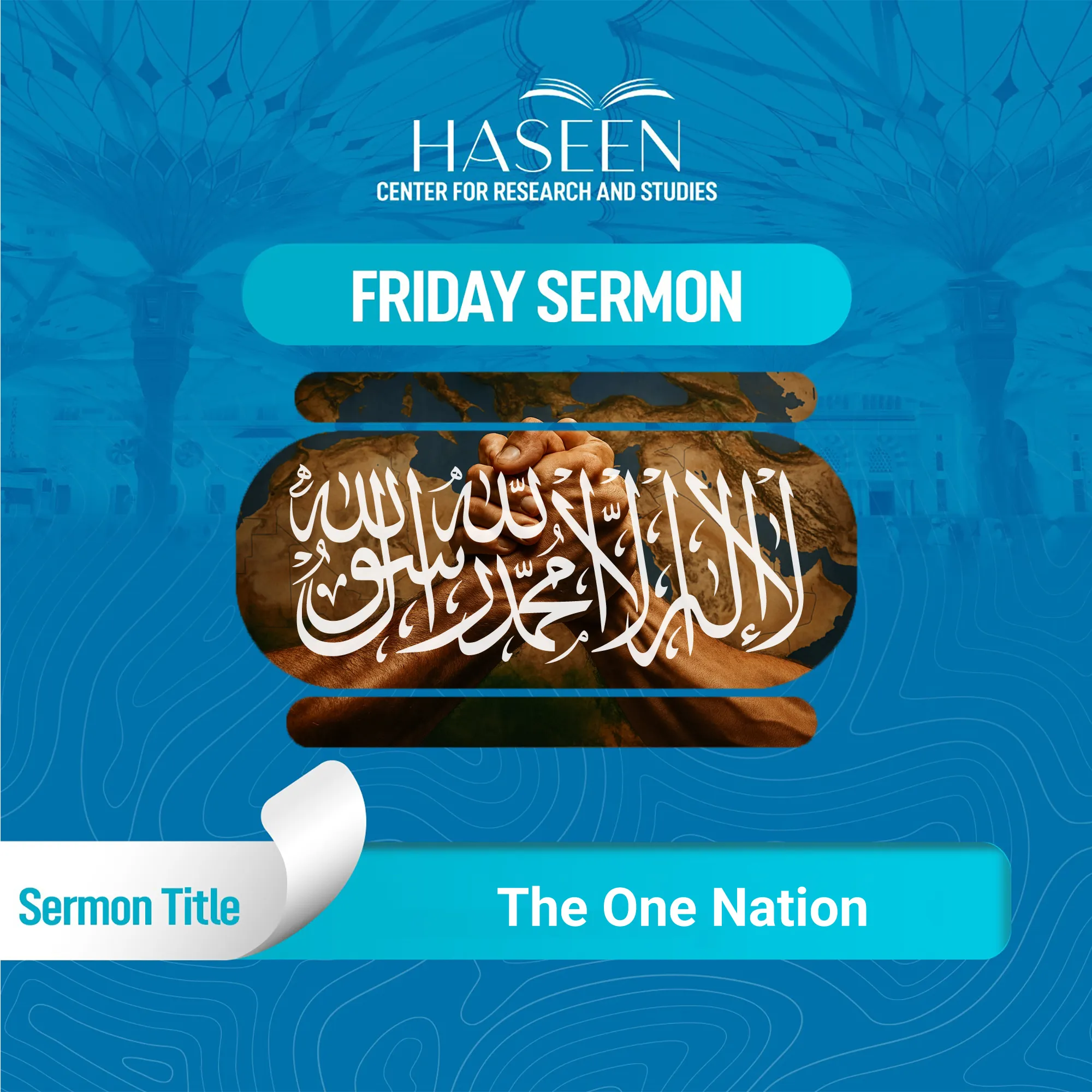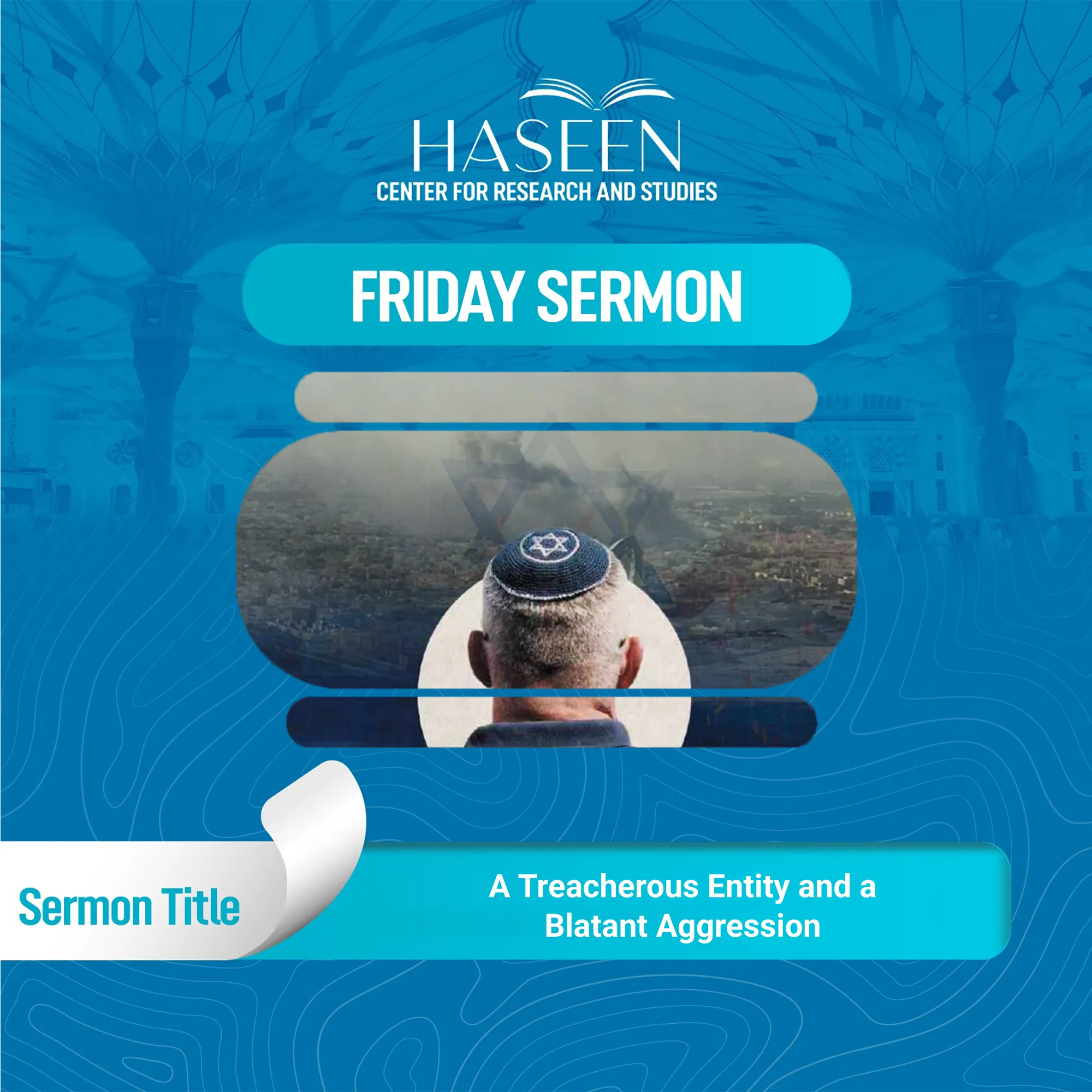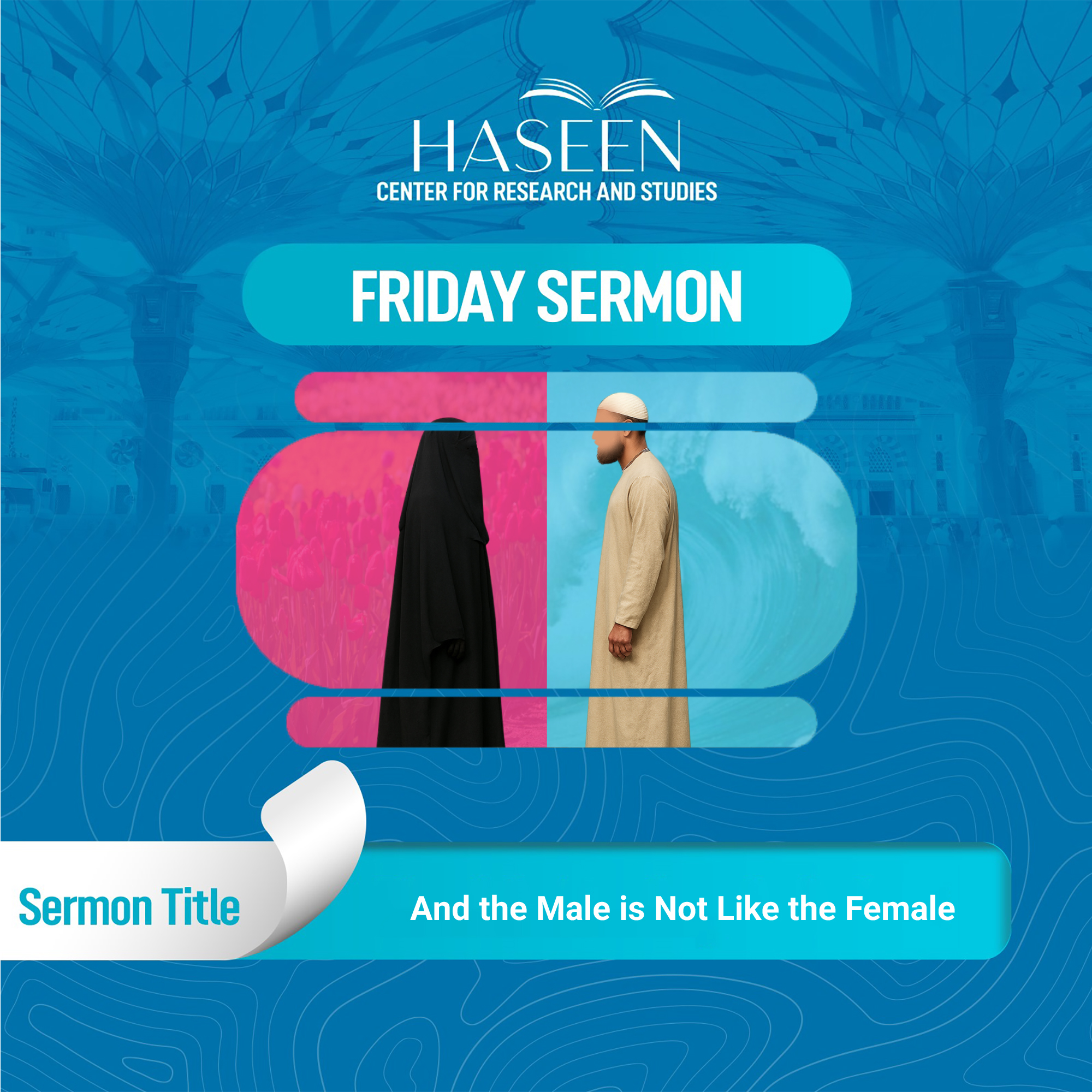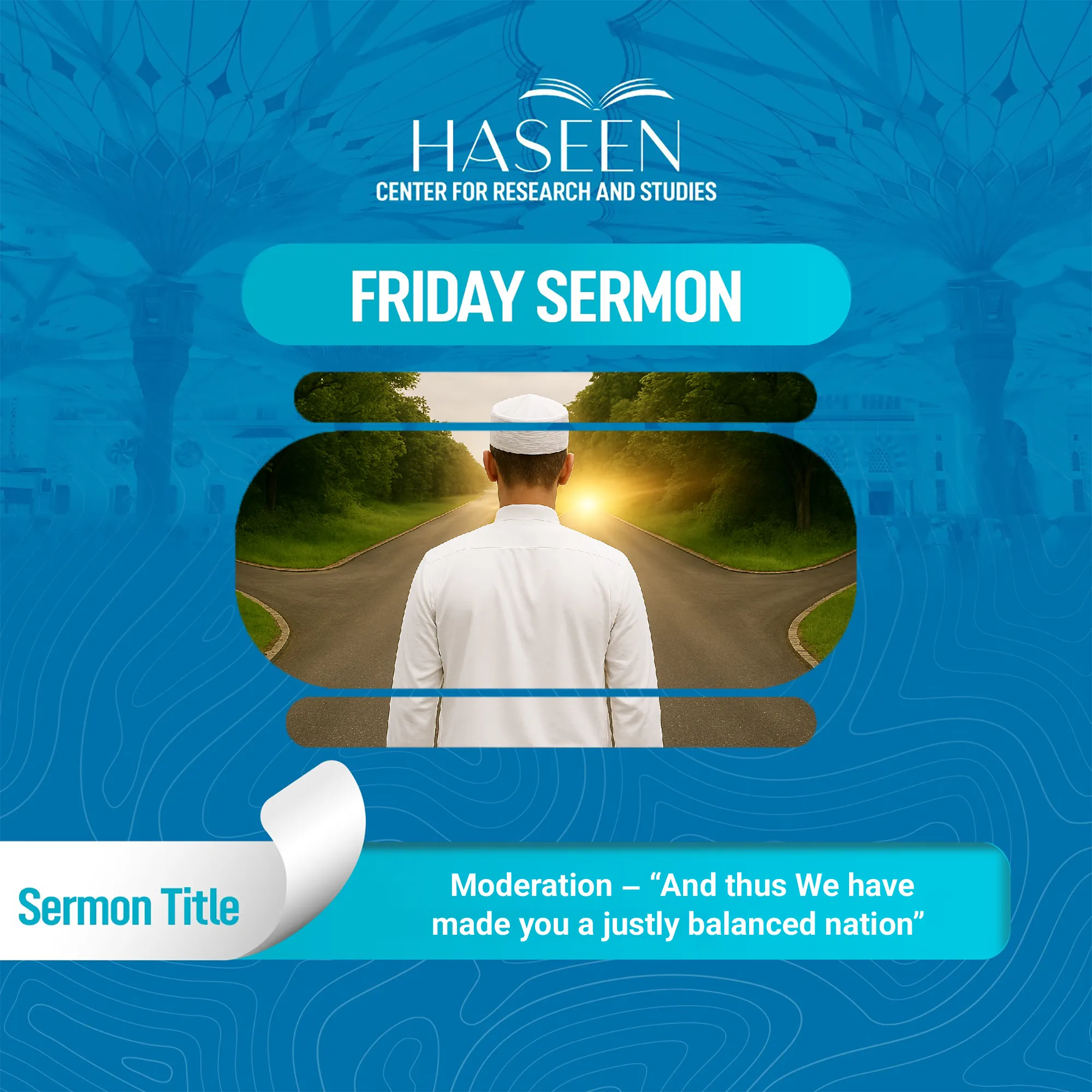Title of the sermon: “Ask the People of Knowledge.”
Elements of the sermon:
1- Knowledge comes before speech and action.
2- The obligation to ask the people of knowledge.
3- The qualities of the scholar who must be consulted.
All praise is due to Allah, the Most Generous, who taught by the pen and taught man what he did not know. I bear witness that there is no deity worthy of worship but Allah alone, without partner, and I bear witness that Muhammad is His servant and Messenger. May Allah’s peace and blessings be upon him, his family, and his companions in abundance.
To proceed: fear Allah, servants of Allah, as He should be feared, and be mindful of Him in secret and in public.
يَا أَيُّهَا الَّذِينَ آمَنُوا اتَّقُوا اللَّهَ حَقَّ تُقَاتِهِ وَلَا تَمُوتُنَّ إِلَّا وَأَنْتُمْ مُسْلِمُونَ
“O you who believe, fear Allah as He should be feared, and do not die except as Muslims.” [Sūrat Āl ʿImrān: 102]
Servants of Allah:
A man once came to the Prophet ﷺ and asked, “O Messenger of Allah, which land is the worst?” He replied, “I do not know.” When Jibrīl (peace be upon him) came, the Prophet ﷺ asked him the same question, and Jibrīl answered, “I do not know until I ask my Lord.” Then Jibrīl went and stayed for as long as Allah willed, and when he returned, he said, “O Muhammad, you asked me which land is the worst. I said, I do not know, and I asked my Lord, the Mighty and Majestic, and He said: ‘Its marketplaces.’” (Reported by Aḥmad).
This ḥadīth establishes a great principle: that it is not permissible to speak about matters without knowledge, and that whoever does not know must return to those who do — the people of knowledge. When the Prophet ﷺ was asked, he said, “I do not know.” Then he referred the matter to Jibrīl, and Jibrīl in turn said, “I do not know,” until he asked Allah, who is All-Knowing of everything. This principle is recorded in the Book of Allah, where He says:
فَاسْأَلُوا أَهْلَ الذِّكْرِ إِنْ كُنْتُمْ لَا تَعْلَمُونَ * بِالْبَيِّنَاتِ وَالزُّبُرِ
“So ask the people of knowledge if you do not know, with clear proofs and scriptures.” [Sūrat al-Naḥl: 43–44]
Servants of Allah:
The purpose of creating jinn and mankind is to establish servitude to Allah alone. A Muslim cannot fulfill this purpose except by first knowing Allah, then knowing how to worship Him, and finally performing that worship with insight and guidance. Whoever does so is upon the straight path that every Muslim asks for in prayer, saying: “Guide us to the straight path, the path of those whom You have blessed, not of those who incurred Your anger nor of those who went astray.”
Knowledge must precede both speech and action — this is the path of Islam and the key to success. Allah said: “So know that there is no god but Allah and seek forgiveness for your sin.” Scholars have noted: He began with knowledge before speech and action.
The Prophet ﷺ said: “Seeking knowledge is an obligation upon every Muslim.” (Reported by Ibn Mājah).
And Imām Aḥmad ibn Ḥanbal spoke the truth when he said: “People’s need for knowledge is greater than their need for food and drink, for food and drink are needed once or twice a day, but knowledge is needed as often as one breathes.”
The Muslim, therefore, is one of two kinds of people: either a scholar of the Sharīʿah — one who strives to learn the Qur’an and Sunnah, their meanings, and the rulings of the religion through proper learning — fulfilling the communal duty that Allah commanded when He said:
وَمَا كَانَ الْمُؤْمِنُونَ لِيَنْفِرُوا كَافَّةً فَلَوْلَا نَفَرَ مِنْ كُلِّ فِرْقَةٍ مِنْهُمْ طَائِفَةٌ لِيَتَفَقَّهُوا فِي الدِّينِ وَلِيُنْذِرُوا قَوْمَهُمْ إِذَا رَجَعُوا إِلَيْهِمْ لَعَلَّهُمْ يَحْذَرُونَ
“It is not for the believers to go forth all together. But why should not a group from every division of them go forth to become learned in religion and to warn their people when they return to them, that they might be cautious?” [Sūrat al-Tawbah: 122]
Such people continue striving in the path of Allah until they reach the rank of the scholars whom Allah elevated above others, as He said:
يَرْفَعِ اللَّهُ الَّذِينَ آمَنُوا مِنْكُمْ وَالَّذِينَ أُوتُوا الْعِلْمَ دَرَجَاتٍ
“Allah will raise those who believe among you and those who have been given knowledge by degrees.” [Sūrat al-Mujādilah: 11]
Or he is a learner who seeks salvation by asking the people of knowledge — the people of remembrance.
Everyone apart from these two types has gone astray from the straight path, for he is among the ignorant.
ʿAlī ibn Abī Ṭālib (may Allah be pleased with him) said: “People are of three types: a learned scholar, a student upon the path of salvation, and the ignorant rabble who follow every caller, swaying with every wind. They have not been illuminated by the light of knowledge, nor sought refuge in a firm pillar.” (Reported by Abū Nuʿaym).
Anyone who reflects upon people’s lives realizes that most Muslims cannot all be from the scholars specialized in the sciences of Sharīʿah, for that would disrupt the affairs of life. Yet it is an individual obligation upon the ummah to ensure there exists a sufficient number who teach the people their religion.
As for the Muslim who is not a specialist, it is obligatory upon him to learn and ask the people of knowledge about whatever Allah has required of him to believe, say, or do. This is not optional or a matter of curiosity; it is a personal duty.
ʿAbd Allāh ibn Masʿūd (may Allah be pleased with him) said: “One of you will continue to be upon goodness as long as he fears Allah, and whenever something confuses him, he asks someone who will clarify it for him.” (Reported by al-Bukhārī).
But who is the scholar that a Muslim may ask and take his religion from?
Those who are to be asked — the people of remembrance — must possess two qualities. The first is sound, established knowledge, taken from true scholars and grounded in correct understanding.
Allah commanded that when we seek knowledge of Him, we ask those who are well-versed and experienced, saying:
الرَّحْمَنُ فَاسْأَلْ بِهِ خَبِيرًا
“The Most Merciful — so ask about Him one well-informed.” [Sūrat al-Furqān: 59]
One of the signs of the Hour is that ignorant people will assume leadership and give religious rulings without knowledge.
The Prophet ﷺ said: “Indeed, Allah does not take away knowledge by snatching it from the hearts of the people, but He takes away knowledge by taking away the scholars. Until when He leaves no scholar, the people will take ignorant leaders; they will be asked, and they will issue rulings without knowledge, so they will go astray and lead others astray.” (Reported by al-Bukhārī and Muslim).
This ignorant person who issues religious verdicts without having studied the Sharīʿah and attained proper understanding is sinful in his fatwā; he commits a major sin among the gravest of sins. Allah the Exalted said:
قُلْ إِنَّمَا حَرَّمَ رَبِّيَ الْفَوَاحِشَ مَا ظَهَرَ مِنْهَا وَمَا بَطَنَ وَالْإِثْمَ وَالْبَغْيَ بِغَيْرِ الْحَقِّ وَأَنْ تُشْرِكُوا بِاللَّهِ مَا لَمْ يُنَزِّلْ بِهِ سُلْطَانًا وَأَنْ تَقُولُوا عَلَى اللَّهِ مَا لَا تَعْلَمُونَ
“Say: My Lord has only forbidden immoralities—what is apparent of them and what is concealed—and sin, and oppression without right, and that you associate with Allah that for which He has sent down no authority, and that you say about Allah that which you do not know.” [Sūrat al-Aʿrāf: 33]
Speaking about Allah without knowledge is a fabrication against Him, and the one who does so is threatened by Allah with destruction and ruin. Allah said:
وَلَا تَقُولُوا لِمَا تَصِفُ أَلْسِنَتُكُمُ الْكَذِبَ هَذَا حَلَالٌ وَهَذَا حَرَامٌ لِتَفْتَرُوا عَلَى اللَّهِ الْكَذِبَ إِنَّ الَّذِينَ يَفْتَرُونَ عَلَى اللَّهِ الْكَذِبَ لَا يُفْلِحُونَ
“And do not say, concerning the falsehood your tongues describe, ‘This is lawful and this is unlawful,’ to invent lies about Allah. Indeed, those who invent lies about Allah will never succeed.” [Sūrat al-Naḥl: 116]
Such an ignorant person who gives rulings without knowledge becomes a barrier between the people and Allah, spreading corruption upon the earth.
Have you not reflected on what happened to the man who had killed ninety-nine souls? He asked about the most knowledgeable person on earth and was directed to a monk. He said to him: “I have killed ninety-nine souls; is there any repentance for me?” The monk replied: “No.” So he killed him, completing one hundred. Then he asked again about the most knowledgeable person on earth and was directed to a scholar. He said: “I have killed one hundred souls; is there any repentance for me?” The scholar replied: “Yes — and who can stand between you and repentance?” (Reported by al-Bukhārī and Muslim).
That monk who gave an ignorant ruling that repentance was impossible was sinful, while the scholar knew that the gate of repentance remains open until the soul reaches the throat, so he opened for him the doors of Allah’s mercy.
Observe also how the Prophet ﷺ supplicated against those who gave verdicts without knowledge and thereby caused the death of a Muslim:
Jābir ibn ʿAbd Allāh (may Allah be pleased with them both) said: “We set out on a journey, and one of us was struck by a stone and suffered a head wound. Then he had a wet dream and asked his companions, ‘Do you find any concession for me to perform dry ablution (tayammum)?’ They said, ‘We do not find for you any concession while you can use water.’ So he bathed and died. When we came to the Prophet ﷺ, he was informed of what had happened and said, ‘They killed him — may Allah kill them! Why did they not ask when they did not know? The cure for ignorance is asking! It would have been enough for him to perform tayammum, to bandage his wound, wipe over it, and wash the rest of his body.’” (Reported by Abū Dāwūd).
May Allah bless me and you through the Noble Qur’an, and benefit us by its verses and wise remembrance. I seek forgiveness from Allah for myself and for you, so seek His forgiveness — indeed, He is the Most Forgiving, the Most Merciful.
Second Sermon
All praise belongs to Allah, and peace and blessings be upon the Messenger of Allah, his family, his Companions, and those who follow him.
To proceed:
We have mentioned that those whom Allah has commanded us to ask — the people of knowledge — possess two essential qualities. The first is sound and established knowledge; the second is piety and integrity — that such a scholar be known among people for his God-consciousness and uprightness. He is a true, devout scholar who acts upon his knowledge, untainted by sin or innovation. You do not find him selling his religion with strange or deviant fatwas to please secularists and people of desires. He does not distort the religion, nor does he incline toward the criminals and enemies of Allah.
If Allah, the Exalted, required justice in witnesses, saying:
وَأَشْهِدُوا ذَوَيْ عَدْلٍ مِنْكُمْ
“And bring to witness two just men from among you” [al-Ṭalāq: 2]
Then the religion of Allah is even more deserving of being taken only from the upright.
The Prophet ﷺ said: “This knowledge will be carried by the trustworthy of every generation — they will remove from it the distortions of the extremists, the fabrications of the false claimants, and the misinterpretations of the ignorant.” (Reported by al-Ṭaḥāwī)
Indeed, a corrupted scholar who has sold his religion is a trial for every diseased heart.
Sufyān al-Thawrī, may Allah have mercy on him, said: “It used to be said: Seek refuge in Allah from the trial of the ignorant worshipper and the sinful scholar, for their trials are a temptation for every one who is tested.”
O people, hold fast to the senior scholars of knowledge when calamities and major issues arise. Ibn Masʿūd, may Allah be pleased with him, said: “People will remain upon goodness so long as they take knowledge from their seniors, their scholars, and their trustworthy ones. But if they take it from their juniors and their wicked ones, they will perish.” (Reported by al-Bayhaqī)
O Allah, grant victory to Islam and honor the Muslims. Destroy the disbelieving criminals. O Allah, send tranquility upon the hearts of those striving in Your cause, deliver Your oppressed servants, and raise high the banner of the religion by Your power, O All-Powerful, O Almighty.
O Allah, grant us safety in our lands, set right our leaders and those in authority over us, and make our leadership among those who fear You, are mindful of You, and follow Your pleasure.
Our Lord, grant us good in this world and good in the Hereafter, and protect us from the torment of the Fire.


